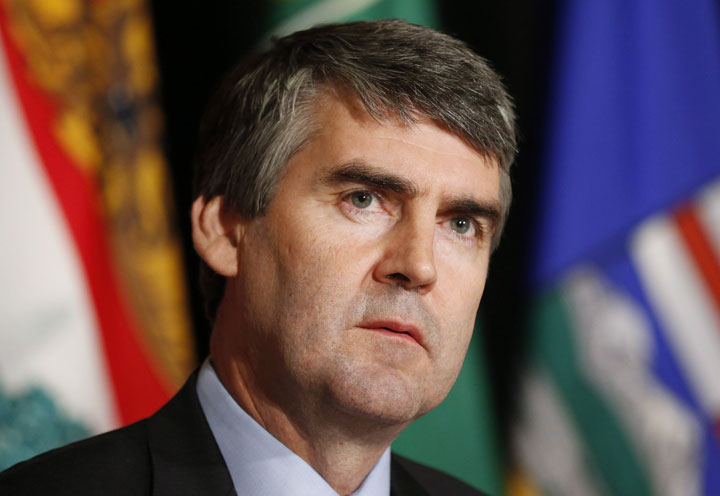HALIFAX – The spring session of the Nova Scotia legislature wrapped up Thursday after a sitting that became tumultuous with the introduction of essential services legislation that ended a nurses strike in Halifax.

Liberal Premier Stephen McNeil said his government delivered on key commitments, including eliminating interest on Nova Scotia student loans and reinstating ferry service between Yarmouth and Maine.
His majority government also implemented essential services legislation last month that put an end to a strike by 2,400 unionized nurses after contract talks broke down.
“We’re pleased with the work that’s been done. We got our budget through. We’ve been able to make some investments in research and development, research grants for university students and provide more apprenticeship opportunities,” McNeil said Thursday night.
McNeil adds that though the spring session is ending, things are only just beginning.
“There is no short term fix for the challenges facing this province. It will take strategic investment and long term strategy to help us move forward,” he said.
He also urges patience and understanding from constituents.
“Every time you make a decision, we recognize they’re going to have some impact on Nova Scotians. Our job is to try and stabilize that balance,” he said in reference to the nurses’ dispute and the home care workers’ dispute earlier this year, both of which were quashed with the passing of essential services legislation.
“We were trying to strike the balance of…what we were hearing from Nova Scotians. The uncertainty of what services were going to be there. There was no stability of a plan. This piece of legislation will provide some level of certainty for patients and their communities.”
Progressive Conservative Jamie Baillie said McNeil’s government failed to do enough to rebuild the province’s stagnant economy.
Baillie said the province is still stuck with high electricity rates, an unbalanced budget and no plan for job creation even though the government passed 27 bills during the month-long session.
“The Liberals’ decision to do nothing is a sign of incompetence,” Baillie said in a statement. “Nova Scotians are in a worse position now than before the election (in October).”
Baillie also drew attention to the hundreds of surgeries and procedures cancelled during the short-lived labour dispute with registered nurses, and the ongoing delays and cost overruns associated with the restoration of the Bluenose II.
“The light agenda from the Liberal government is a clear sign that this government is not competent to lead our province,” Baillie said. “It was time for action, there was a clear action plan available and we got nothing.”
PC House Leader Chris D’Entremont told Global News that working with the Liberals was “a hit and miss”.
“There were some agreements on some things and a lot of things, they didn’t really care what the Opposition was saying because they were using a majority and passing a number of bills,” he said.
D’Entremont said he wished that there had been more debate on the budget and energy bills.
NDP Leader Maureen MacDonald said the government let Nova Scotians down during the spring sitting.
She said the Liberals started the session by introducing “draconian” legislation that removed collective bargaining rights from nurses and other health-care workers.
“Stephen McNeil and his government ignored nurses’ warnings of under-staffing, patient safety and low morale … by introducing a bill that forced them back to work without a deal reached at the bargaining table,” MacDonald said.
“The government has no plan to improve working conditions for nurses and health-care workers. This move will poison relations between health-care workers and the government for years to come.”
MacDonald said collaborating with the Liberals was quite “schizophrenic”.
“Some days they are kinder and gentler but most days they probably aren’t all that kind and gentle,” she said.
“The McNeil government was not as advertised. They made commitments to people they would lower their electricity rates, they would merge the district health authorities, they would help students around debt and high tuition. The premier says ‘All these things are things that can happen, we need to take a long term view’. But they didn’t say that when they were running in the election that these are things that couldn’t happen until they’re into three of four years of a mandate.”
– With files from reporter Julia Wong



Comments